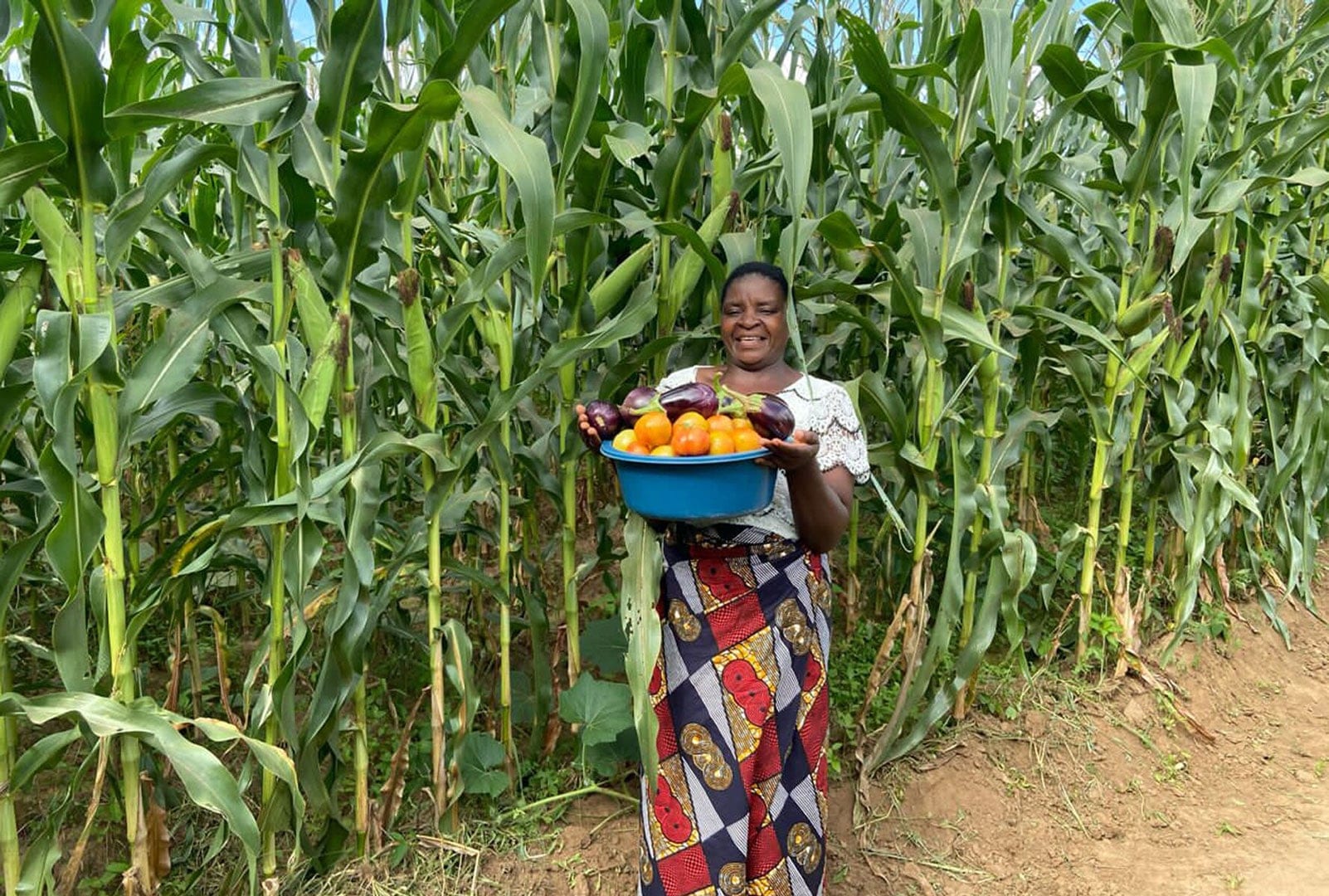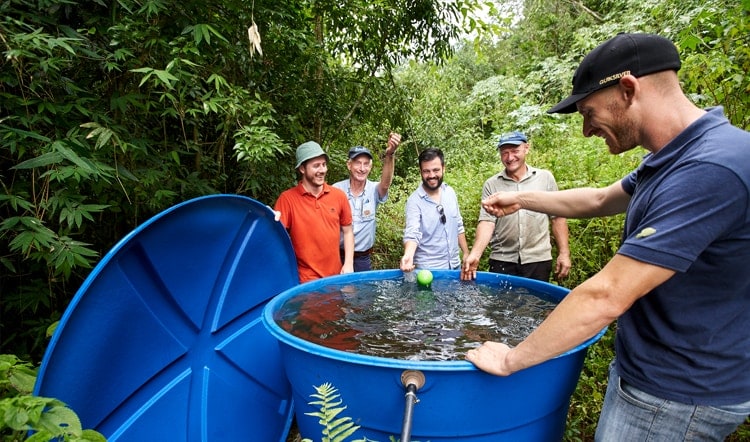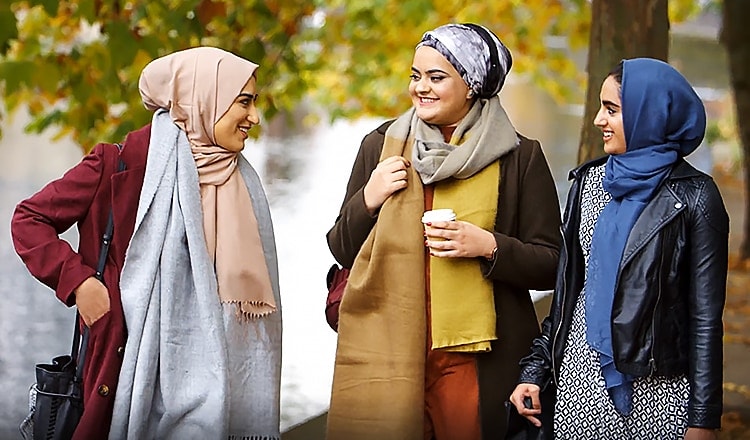Philip Morris International (PMI) sources tobacco from a network of farmers in communities across Malawi, but it is the female spouses of some of these farmers who are the focus of this story.
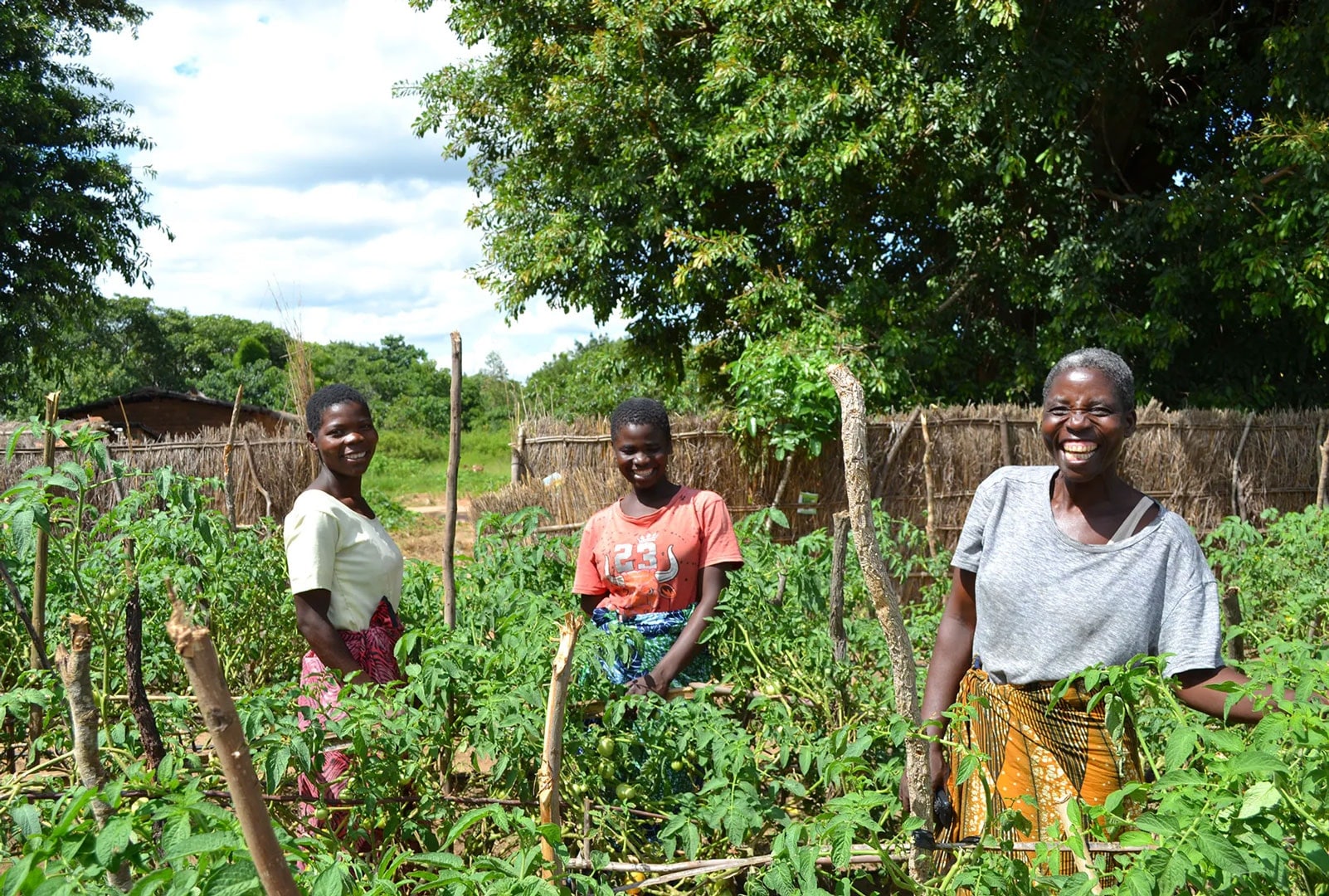
Through the creation of the Village Savings and Loans Associations (VSLAs), PMI is empowering these women in Malawi by offering them the opportunity to create small, thriving businesses. One of these VSLA projects has been to supply women with mini drip-irrigation “starter kits,” also containing vegetable seed, fertilizer, and spray equipment, along with training and help with fencing—everything needed to create a thriving vegetable garden.
So far, 446 women from PMI suppliers’ tobacco growing communities have been supplied with these kits. The project’s aim is to empower female spouses of farmers by enabling them to contribute to the household income by selling a proportion of their vegetables, with the surplus providing nutritious produce for their households.
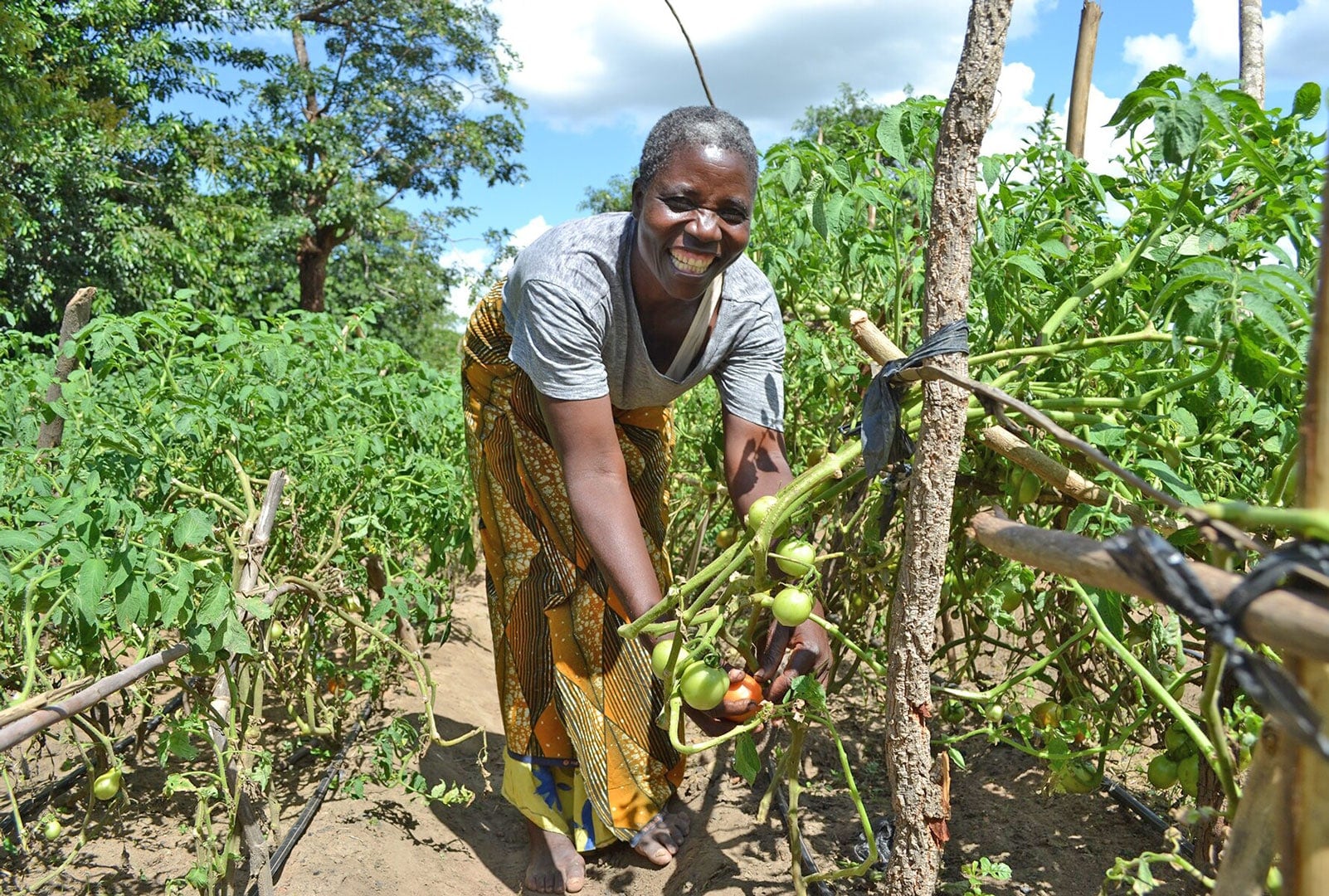
Growing stronger, together
Not only does this project benefit individuals, it also empowers communities to work together. Each VSLA member in the project received three starter kits, which can cover 45m2 of land. The project’s 26 groups chose to work collectively, thereby creating economies of scale with the hope of generating greater profit.
“The drip irrigation kits have helped our group generate additional funds, which interest from shares in the VSLA alone could not achieve,” says Magret Liyaya, a member of the Tikondane VSLA. “As a group, this money has allowed us to consider starting an additional group business.”

The program began in July 2023, overcoming challenges such as access to land (many women do not have available land, especially near a water source) and providing training in sparsely located groups or villages. The VSLAs were vital at this point because it allowed the women to pool enough money to buy land collectively, which many couldn’t have managed on their own.
So far, 1,338 irrigation kits have been provided to participants in the scheme, covering a total area of around 20,000m2 (two hectares). Twenty-six vegetable collective sites have been developed, benefiting 446 women, who have also received training on vegetable production and financial management. Through an initial trial carried out by the Agricultural Diversification project, it was estimated that beneficiaries can make on average USD 120 per cycle (a period of 3-4 months).
“After vegetable sales, the money goes into the group account from where one can borrow money,” says Veronica Mwale, a member of the Malayina VSLA. “This has improved our household’s income, meaning I can pay school fees and other educational necessities for my children. I can also buy affordable vegetables close to my house, saving me money, and giving me more time for other business.”

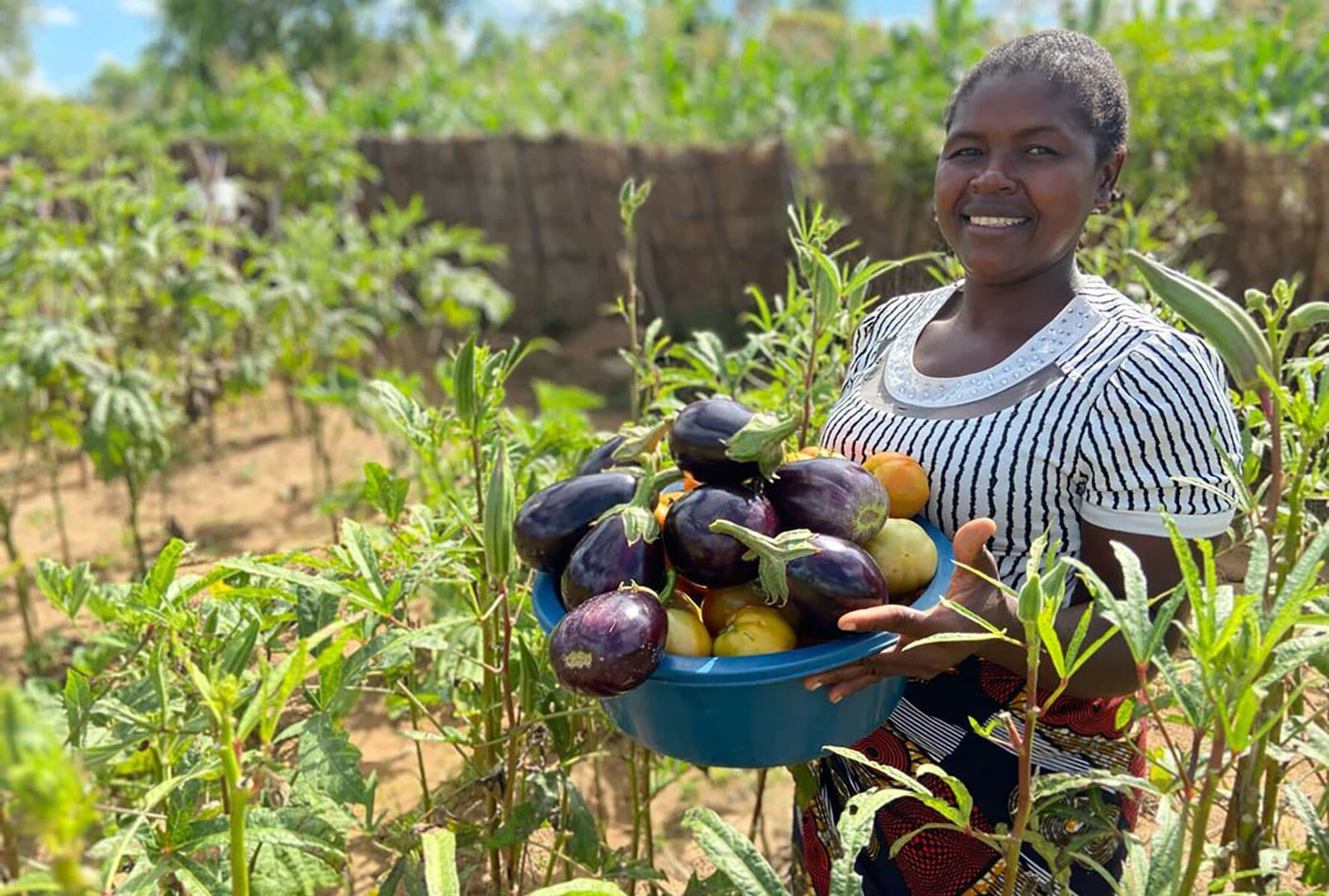
Planting seeds for the future
The team aims to expand the project sustainably, helping members to continue contributing to their household income, and offering the opportunity to explore additional business ventures, with recent examples being tea rooms, bakeries, grain trading, poultry farming, restaurants, and bicycle and motorbike taxis. In terms of numbers, they hope to double the number of beneficiaries by the end of 2024.
“While the project has the potential to bring additional income to households, it’s also providing nutritional diversity, as the women now have access to a variety of vegetables from the VSLA markets,” says Crocus Hamsini, PMI Operations. “Undernutrition is a persistent issue for both children and women in Malawi, so helping address this is another benefit of the project.”

